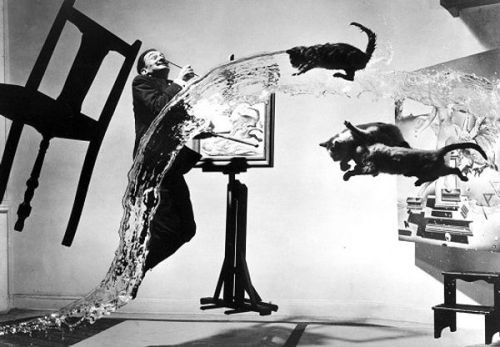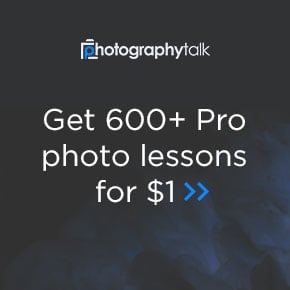- Forum
- General Discussion | Introductions | Off Topic Forum
- Photography General Discussion
- Has digital devalued photography?
Has digital devalued photography?
-
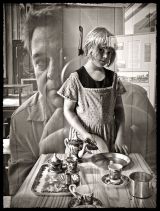
- Henry Peach
- Apprentice
-
- I currently use a 5DII or Sony Nex-3 most of the time.
- Followers: 50
- Posts: 2925
-
Points:
16
Post #118501
Digital requires more exposure accuracy than print film, and probably some understanding of processing. The thing about digital is that the instant feedback makes it a lot more fun. A lot of folks who were perfectly capable of learning photography never did because having to wait for photos kept them from getting into it. Fun is inspirational. People see their pics right away, and keep on working, practicing, and learning. There are more folks studying photography than ever, and in some photography markets that means there is more supply than demand.
When I worked in a photo lab in the 1990s we'd get the national stats on how much film people were buying, how many pics they were taking, etc... The national average in the USA was less than 24 exposures a year. Most people weren't even shooting one roll of film a year. I don't know what the numbers are today, but I assume it's risen significantly.
-
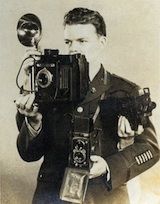
- MLKstudios
- Banned
-
- D800 ;-)
- Followers: 72
- Posts: 4480
-
Points:
2
Post #118509
Matthew L Kees
MLK Studios Photography School
www.MLKstudios.com
[email protected]
"Every artist, was once an amateur"
-

- Henry Peach
- Apprentice
-
- I currently use a 5DII or Sony Nex-3 most of the time.
- Followers: 50
- Posts: 2925
-
Points:
16
Post #118518
MLKstudios wrote: Can we count cell phone pics?
Sure, that's today's point-n-shoot. Many do a better job than the hollow plastic point-n-shoots of the 80s and 90s. I notice that the local newspaper has a lot less staff photogs these days. For most of their needs a journalist with a cell phone cam is all they send.
-

- Kid Prodigy
- Snapobsessed
-
- Canon EOS 7D
- Followers: 68
- Posts: 309
-
Points:
960
Post #118740
Henry Peach wrote:
MLKstudios wrote: Can we count cell phone pics?
Sure, that's today's point-n-shoot. Many do a better job than the hollow plastic point-n-shoots of the 80s and 90s. I notice that the local newspaper has a lot less staff photogs these days. For most of their needs a journalist with a cell phone cam is all they send.
Speaking of which, how many MP's are they up to these days? 8MP?
Canon EOS 7D|Canon EF 70-200mm F/2.8L USM |
Canon EF 50mm F/1.4 USM |
(2) Canon Speedlite 480EX II
-

- Stealthy Ninja
- Moderator
-
- Fuji X stuff and a 1DsIII for some reason
- Followers: 982
- Posts: 16300
-
Points:
6837
Post #118852
Henry Peach wrote: Photography has been fairly easy for coming up on 125 years now. It was the introduction of roll film and send-out processing and printing that made it so anyone who wanted to could become a photographer. In my opinion print film is still the most goof-proof photographic method out there: get the exposure right within a few stops, and drop it off at the lab. They return decent prints. How does it get any easier?
Digital requires more exposure accuracy than print film, and probably some understanding of processing. The thing about digital is that the instant feedback makes it a lot more fun. A lot of folks who were perfectly capable of learning photography never did because having to wait for photos kept them from getting into it. Fun is inspirational. People see their pics right away, and keep on working, practicing, and learning. There are more folks studying photography than ever, and in some photography markets that means there is more supply than demand.
When I worked in a photo lab in the 1990s we'd get the national stats on how much film people were buying, how many pics they were taking, etc... The national average in the USA was less than 24 exposures a year. Most people weren't even shooting one roll of film a year. I don't know what the numbers are today, but I assume it's risen significantly.
I agree with most of what you say, apart from that one thing I highlighted bold. Digital these days gets just as much DR as film at a given ISO/ASA number. So long as you shoot RAW that is. So the accuracy needed is even less in some ways. Especially if you're underexposing for the highlights.
Slightly off topic, but related to that. It does seem to me that Canon cameras do highlights better than Nikon and the darks worse. So with Canon it's a good idea to overexpose slightly and bring it down (to reduce noise) and with a nikon it's better to expose for the highlights (underexpose if necessary) and bring it up if need be.
-

- The Time Capturer
- Master of the Lens
-
- Canon Rebel XSi D-SLR and Fujifilm FinePix HS10
- Followers: 90
- Posts: 1641
-
Points:
237
Post #118904
Kid Prodigy wrote: Speaking of which, how many MP's are they up to these days? 8MP?
Mine's 12 mp
Sure, practice makes perfect but, unless you learn from your mistakes, you are only perfecting your ability to fail.
-
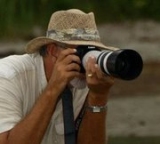
- Fastball Photography
- Newbie
-
- Canon
- Followers: 11
- Posts: 5
-
Points:
20
Post #146018
I think the internet has pretty much diluted the value of a printed photograph to a huge degree.
I think the market price for a photograph has dropped drastically due to the mass volume of photographs being taken, posted, sold at a very low price (microstock images being magazine covers now, marketing directors who can point and click to get a 5 dollar image for a marketing piece in second vs having to call a group of photographers and commission or request from stock a perfect image, they find one that will fit.
What it has also done is raise the bar very high for a high value image. Its increased competition into many markets that did not have much before and its driven down the going rate that people can afford (family portraits, weddings in general) or will pay for those services (Hey Walmart only charges $2.50 for an 8x10, who do you think you are changing me $50?)
Its a totally new era in the craft, great technology is out there for those who can afford to buy it but having the technology does not make a great photo, great photographers do,, BUT blind squirrels do find acorns too. problem is they are happy to sell it for a dollar when it could be worth hundreds.
-

- MLKstudios
- Banned
-
- D800 ;-)
- Followers: 72
- Posts: 4480
-
Points:
2
Post #146025
Matthew L Kees
MLK Studios Photography School
www.MLKstudios.com
[email protected]
"Every artist, was once an amateur"
-

- meezer3
- Newbie
-
- Canon Power shot SX30IS
- Followers: 2
- Posts: 5
-
Points:
0
Post #146033
Years ago we had a Canon FTB SLR and both a B/W and Color darkroom and did some processing on our own. What we had to do to get one good picture took several hours (we weren't professionals, just hobbists;) ) and often the results were disappointing. The cost got way out of hand in respect to the results and many photos were tossed.
When digital photography came in with all the new graphic techniques (Our first being a Sony DSC-S70 that we still have), and with our new camera (Canon Powershot SX30 IS) I am having the time of my life experimenting like crazy with Picnik and now Photshop. I can take a "poor picture" and make it into a pretty good picture just by cropping and "tweeking" things digitally. Add a little special effects and now it becomes Art. And If I don't like it, a click of the button and its gone at no cost to me.
Its opened up an whole new era for average people to be able to take really good shots with little work envolved. Its also allowed people to share their photos and to have them critiqued by others on social sites like Flickr and Webshots. Plus having cameras in your cell phone has enabled "at the moment, news worthy photos" to be shared worldwide, in almost seconds.
But because its become so easy, and there are so many people out there taking pictures, the few really good people stand out even more. You still have to know your camera and all its features, then put them to use to make a ordinary photo an extraordinary one.
Digital photography has now -really- become "Art" in all its true senses. Its enabled all of us to improve and find new levels with our picture taking. Not all of us are ment to be "Van Goghs or Michaelangelos" of photography but we can still express ourselves visually and be darn proud of it.
-

- MeganPearson
- Has the Hang of it
-
- Nikon D7000
- Followers: 18
- Posts: 59
-
Points:
0
Post #146050
My husband is of the opinion that a photograph doesn't represent the truth anymore, because of the extreme amount of manipulation we are now capable of. (Remove entire buildings, trees, people, head swap, etc).
If this wasn't possible before digital, then I would have to say I agree with him to an extent.
-

- MLKstudios
- Banned
-
- D800 ;-)
- Followers: 72
- Posts: 4480
-
Points:
2
Post #146061
Matthew L Kees
MLK Studios Photography School
www.MLKstudios.com
[email protected]
"Every artist, was once an amateur"
-

- MeganPearson
- Has the Hang of it
-
- Nikon D7000
- Followers: 18
- Posts: 59
-
Points:
0
-

- Fastball Photography
- Newbie
-
- Canon
- Followers: 11
- Posts: 5
-
Points:
20
Post #146070
MeganPearson wrote: If I may, ask a question in response to the original post? How easy was it before digital came along to remove unwanted elements from a photograph? I started in digital so I truly don't know.
My husband is of the opinion that a photograph doesn't represent the truth anymore, because of the extreme amount of manipulation we are now capable of. (Remove entire buildings, trees, people, head swap, etc).
If this wasn't possible before digital, then I would have to say I agree with him to an extent.
it could be done in the darkroom, how easy,, well it was not that easy at all, and it was not fast, and it cost you money for every mistake you made (paper and chemicals not to mention time), You could take a photo, develop it, then another,, you cut out parts of each to ":mask" areas out, move things around and develop another print... at times you may have to expose things 4 or 5 times, taking into consideration the overall exposure times, You could also dodge and burn things with tools, like a wire with a circle of paper on it to wave around an area to change exposure to light... It could be fun,, you could take out things like a telephone pole in the sky or you could use two or three different negtives to merge them together,,, BUT we could be talking many hours setting in the dark to do it. Now, heck its point click, check it, redo it, point click and your investment is all up front for Photo Shop, Plug Ins, quad core processing power and huge hard drives..
To your husband,, if its a news piece, by a reputable agency, you are seeing what was taken. If its just looking at someones photo on the web, who knows. Contests can be very picky too, no cloning or major edits.. but others welcome the creative too. its a new world of photography since digital and Photo Shop
-

- MLKstudios
- Banned
-
- D800 ;-)
- Followers: 72
- Posts: 4480
-
Points:
2
Post #146072
Matthew L Kees
MLK Studios Photography School
www.MLKstudios.com
[email protected]
"Every artist, was once an amateur"
-

- yonders
- Has the Hang of it
-
- NIKON D700
- Followers: 10
- Posts: 62
-
Points:
0
Post #146089
Nowadays, many photographs if not all have been manipulated and enhanced; thereby changing everything that was captured as seen.
As was mentioned in an earlier post, trees, buildings, etc are added or removed; or for that matter even sceneries have been added.
D Man
'Goan [not Gone] in the desert' (",).
- Forum
- General Discussion | Introductions | Off Topic Forum
- Photography General Discussion
- Has digital devalued photography?
Latest Reviews
Nikon’s retro-looking Nikon Zfc is anything but retro. Under its classic body is a host of features and amenities that make it a worthwhile compact mirrorless camera for 2024.
The Canon EOS R50 is one of the newest R-system cameras from Canon. Is it worth your money? Find out all the details you need to know in this comprehensive review.
The Sony FE 70-200mm f/2.8 GM OSS II is Sony’s flagship mirrorless zoom lens. As such, it’s loaded with features and has a top-shelf build quality that makes it a top pick!
The Leica SL2-S is an attractive, premium mirrorless camera with photo and video specs that are sure to impress. And with the legendary Leica name, you know this camera exudes quality!
Forum Top Posters
-
1TCav 8 posts
-
2Razky 5 posts
-
3CharleyL 5 posts
-
4Randy Shaw 5 posts
-
5Matt VanDyke 4 posts
-
6Prago 4 posts
-
7EOS_Fan 3 posts
-
8Conner 3 posts
-
9Hassner 3 posts
-
10Steve Zahra 3 posts
Latest Articles
Blue hour photography might not be as well known as golden hour photography, but it is every bit as good a time to create epic images of landscapes. Learn how in this quick tutorial!
Nikon’s retro-looking Nikon Zfc is anything but retro. Under its classic body is a host of features and amenities that make it a worthwhile compact mirrorless camera for 2024.
Moving from taking snapshots of your dog to creating beautiful images doesn’t have to be that difficult! Use the tips outlined in this dog photography guide, and you’ll get better results in no time.
Acrylic print photos are a beautiful way to display your favorite images. But they don’t come without some questions. Get all the answers you need about this medium in this guide!
Where do you get your landscape photography inspiration? Is it from masters like Ansel Adams? Or perhaps viewing art from other genres? We’ve got these and a few other sources for you to check out!
The Canon EOS R50 is one of the newest R-system cameras from Canon. Is it worth your money? Find out all the details you need to know in this comprehensive review.
Too often, affordable online printing companies don’t meet your expectations of what a print should look like. But there are some choices that combine affordability with superb quality!
Self-critique is an important component of your journey to improving as a photographer. Use these simple tips about critiquing your work as a means to make faster progress with your art.











